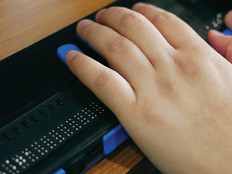West Virginia to Use Mobile, Blockchain-Based Ballots in November
West Virginia is taking its mobile, blockchain-based balloting initiative statewide for the November election.
The state will allow West Virginians serving overseas in the military to vote in the federal election using a smartphone application, as an alternative to a paper ballot, CNN reports.
As StateTech has reported, West Virginia Secretary of State Mac Warner announced in March the state’s intention to pilot the technology to enable secure military mobile voting in two counties. It became the first state in the U.S. to do so in its May 8 primary election. Now, it will be available for all counties, though state officials will let each county make a final decision on whether to use the technology, Michael Queen, Warner's deputy chief of staff, tells CNN. And Warner tells CNN he does not think traditional balloting should be replaced, and adds that troops can still use paper ballots if they want to.
The state is partnering with the company Voatz on the technology, and although some voting and technology experts say the app represents a security risk, the company insists it is secure. According to CNN, Warner’s office said four audits of various aspects of the Voatz solution, including its cloud and blockchain infrastructure, revealed no problems.
How does the system work? CNN reports:
Anyone using it must first register by taking a photo of their government-issued identification and a selfie-style video of their face, then upload them via the app. Voatz says its facial recognition software will ensure the photo and video show the same person. Once approved, voters can cast their ballot using the Voatz app.
The ballots are anonymized and recorded via blockchain’s distributed ledger technology. Still, some experts say they see cybersecurity flaws in the app. “Mobile voting is a horrific idea,” Joseph Lorenzo Hall, the chief technologist at the Center for Democracy and Technology, tells CNN. “It’s internet voting on people's horribly secured devices, over our horrible networks, to servers that are very difficult to secure without a physical paper record of the vote.”








